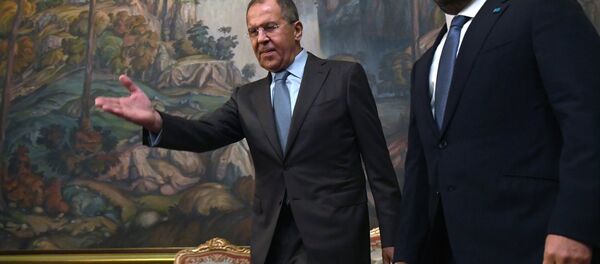The journalist noted, however, that the Obama administration's decision to halt the US-Russian collaboration on Syria comes as no surprise. The ink had barely dried on the Syrian ceasefire deal when the Pentagon's officials openly signaled that they were not quite sure whether or not they would obey by the accords.
Carden called attention to the fact that even US Secretary of State John Kerry, whom many regarded as a"dove," turned out to be a proponent of the military solution in Syria.
"Former general and CIA director David Petraeus, no doubt echoing the establishment consensus on these issues, told Charlie Rose last week that establishing these zones would be 'very, very straightforward' and could be achieved 'very, very quickly'," the US journalist continued.
However, several days ago Chairman of the Joint Chiefs of Staff Gen. Joseph Dunford told the Senate Armed Services Committee that a "no-fly zone" would obviously lead to war with Russia and Syria, Dave Majumdar of The National Interest noted in his recent op-ed.
"Right now, Senator, for us to control all of the airspace in Syria it would require us to go to war against Syria and Russia. That's a pretty fundamental decision that certainly I'm not going to make," Dunford said, as quoted by Majumdar.
He drew historic parallels between the US' Syrian policy and Washington's foreign policy strategy toward Vietnam. Carden underscored that then President Lyndon Johnson dragged the US into the long and exhausting war. Likewise Barack Obama is teetering on the balance of a new devastating conflict in Syria.
"A military solution, and facile promises of easy answers like the imposition of no-fly and/or safe zones (which are neither easy nor answers) is not the way forward," Carden warned.
"Obama and his advisers have made a potentially grave error in cutting off talks with the Russians, and even a cursory glance back through the history of recent American military interventions should steer them back to, not away from, the negotiating table," he underscored.
"The Obama administration did everything to destroy the atmosphere of trust which could foster [bilateral] cooperation," the Foreign Ministry wrote in a statement.
It also referred to the so-called Magnitsky Act that actually marked an era of "an unprecedented sanction pressure" on Russia "on far-fetched pretexts."
During his Tuesday meeting with Saad Hariri, the leader of Lebanese political party Al-Mustaqbal, Russian Foreign Minister Sergei Lavrov emphasized that "there were many who wanted to break up [the Syrian ceasefire agreement] from the beginning, including within the US administration."
However, Lavrov stressed, Moscow believes that only through cooperation the international community may bring the Syrian war to an end.
"We do not shy away from our responsibilities, but we believe that only collectively, only together — including with the US and Europe and with all the key countries in the region — can this crisis be resolved," Lavrov said.




